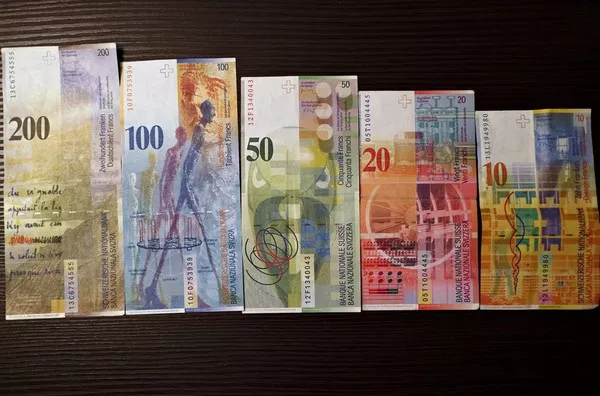The Swiss Franc, symbolized as CHF and with the currency code CHF, is a currency known for its stability and precision. It is the official currency of Switzerland, a small but economically powerful country in the heart of Europe. This article explores the fascinating world of the Swiss Franc, delving into its history, unique features, the Swiss economy, and its significance beyond the nation’s borders.
A Brief History of the Swiss Franc
The Swiss Franc has a rich history that dates back to the 19th century. Prior to the introduction of the Swiss Franc, various currencies circulated in Switzerland. However, the need for a common national currency became apparent, and the Swiss Federal Constitution of 1848 paved the way for the creation of the Swiss Franc. The currency was established in 1850, replacing the different regional currencies that had been in use.
Distinctive Features of the Swiss Franc
Currency Symbol: The Swiss Franc is represented by the symbol “Fr” or “CHF” and is often referred to by the abbreviation “SFr.”
Currency Code: Internationally, it is recognized by the currency code CHF, as per the ISO 4217 standard.
Banknotes and Coins: The Swiss Franc is issued in both banknotes and coins. Banknotes come in various denominations, including 10, 20, 50, 100, 200, and 1,000 Swiss Francs. Coins, on the other hand, are issued in smaller denominations, with coins ranging from 5 centimes to 5 Swiss Francs.
Precision in Design: Swiss Franc banknotes are known for their precise design and attention to detail. Each note features intricate artwork, often depicting elements of Switzerland’s rich cultural and natural heritage.
Multilingual: Switzerland is a multilingual country, and the Swiss Franc banknotes and coins feature text in four official languages: German, French, Italian, and Romansh.
Currency Peg: The Swiss Franc has historically been tied to a currency peg, primarily with the Euro (EUR). The Swiss National Bank (SNB) has maintained a policy to keep the exchange rate of the Swiss Franc stable in relation to the Euro, which has impacted the currency’s value and exchange rate dynamics.
Switzerland’s Robust Economy
The Swiss Franc is underpinned by Switzerland’s robust and diverse economy, which is characterized by several key factors:
Financial Services: Switzerland is renowned for its banking and financial services industry. Swiss banks are known for their stability and discretion, attracting clients from around the world.
Manufacturing: The country has a thriving manufacturing sector, particularly in fields like pharmaceuticals, machinery, and watchmaking. Swiss watches, in particular, are celebrated for their precision and craftsmanship.
Innovation: Switzerland places a strong emphasis on innovation and research. It is home to several leading universities and research institutions, which drive technological advancement and innovation.
Tourism: Switzerland’s breathtaking natural landscapes, including the Alps, lakes, and picturesque villages, make it a popular destination for tourists. The tourism sector contributes significantly to the nation’s economy.
Trade: Despite its small size, Switzerland is a significant player in global trade. The country exports a wide range of products, including machinery, chemicals, and pharmaceuticals.
The Swiss Franc in International Finance
The Swiss Franc is not just a domestic currency; it plays a significant role in international finance. Here are some aspects of the Swiss Franc’s international presence:
Safe-Haven Currency: The Swiss Franc is often considered a safe-haven currency. During times of global economic uncertainty or market turbulence, investors and institutions may flock to the Swiss Franc as a stable and secure store of value.
Currency Reserves: Central banks and financial institutions around the world hold Swiss Francs as part of their foreign exchange reserves due to its stability and the Swiss economy’s soundness.
Currency Trading: The Swiss Franc is actively traded in the foreign exchange (Forex) market. It is one of the major currencies in Forex trading and is particularly attractive to traders seeking stability and liquidity.
Swiss Franc as an Investment: Swiss Franc-denominated assets, such as government bonds, are sought after by investors looking for stability and security. These assets are often used in diversified investment portfolios.
International Transactions: Switzerland’s strong presence in international finance and trade means that the Swiss Franc is commonly used in cross-border transactions, particularly in the fields of banking, finance, and commodities trading.
Challenges and Criticisms
While the Swiss Franc is celebrated for its stability and precision, it has faced certain challenges and criticisms:
Exchange Rate Volatility: Switzerland’s long-standing policy of maintaining a stable exchange rate with the Euro has sometimes been challenging. During times of currency fluctuations, the Swiss National Bank (SNB) has had to intervene in currency markets to defend the peg.
Appreciation Pressures: The Swiss Franc’s reputation as a safe-haven currency can lead to appreciation pressures, which can negatively affect the competitiveness of Swiss exports. To address this issue, the SNB has occasionally implemented policies to weaken the currency.
Bank Secrecy: Switzerland’s banking secrecy laws have faced scrutiny and criticism from various quarters, leading to calls for increased transparency and international cooperation in matters related to financial transparency and tax evasion.
Conclusion
The Swiss Franc is more than just a currency; it embodies the precision, stability, and prosperity of Switzerland. Rooted in a history of economic and political stability, the Swiss Franc is celebrated for its intricate design, multilingualism, and its role in international finance. Switzerland’s diverse and innovative economy, coupled with the currency’s safe-haven status, ensures that the Swiss Franc remains a currency of global significance. However, it also faces ongoing challenges and scrutiny, especially in the context of exchange rate management and international financial regulations. As Switzerland continues to navigate these challenges, the Swiss Franc’s position on the world stage will remain a topic of great interest and importance.


